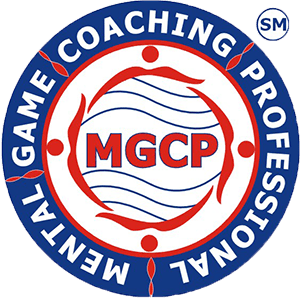Mental Performance Coaching Phases
One of the advantages of the Mental Performance Coaching Certification course is learning my system for doing mental coaching with athletes and teams. In this mental coach mentor video, I preview the Phases of Mental Coaching.
We discuss these in detail in the certification course, but I wanted to give you a sneak peek into some of the things we cover in the program. Each of the phases of mental coaching build upon each other.
By the way, this system is also designed to reduce the anxiety of new mental game coaches when working with athletes because you are more organized and have prepared for your sessions.
Return to Mental Coach Mentor Videos
Transcript
Hi, this is Dr. Patrick Cohn with the MGCP Certification Program, and I’d like to talk a little bit about the phases of mental coaching that I teach in the course.
0:12 And my thinking has changed over the years, and I wanted to share that with you. Originally, when I started the course, I had a philosophy about the phases of mental coaching, and that went like this.
0:26 Awareness, education, application. Um, this is much different today, but it’s certainly a variation of that philosophy. It’s super important that your athletes are aware of how they’re getting in their own way.
0:43 How are they tripping themselves mentally? We always like to start from that perspective. And the assessments in the course, the AMF assessments, help us tweet that out and figure out how your athletes might be getting in their own way.
0:57 Umm, once that is set, we start to work on the educational phase. Those are all the mental skills that we’re going to teach the athlete throughout the program.
1:07 However long that program is. One month, two month, three month, six months. Within that educational phase, we’re teaching athletes, ha, how to improve mental skills.
1:19 Like, how to focus on the process. And how to refocus, for example. Now, this is where it starts to change for me today.
1:28 And we have two forms of practice. We want our athletes to integrate the mental skills right into their regular practice routine here.
1:37 Um, before that though, we can. Have a go between where your athletes can learn the mental skills via mental practice.
1:47 Yes. Athletes can learn their mental skills via mental practice. So they might practice refocusing, for example, using their mental practice given their top triggers.
1:58 years. Then we want to take it and we want to integrate it into practice itself. In other words, let’s practice those mental skills of refocusing, for example, and get used to doing that.
2:11 Bbeing aware, and then obviously refocusing. Then we can apply to the pregame. This is an important step for us.
2:21 We can apply to the pregame for the athlete to be able to recognize that here are my top three triggers and I have to be.
2:28 Be aware of those triggers, like someone in the stands, uh, a friend or a parent in the stands. I know that’s a trigger for a distraction for me and I might have to refocus.
2:39 Um, and then obviously we want to apply that into the games. This is where all of this is leading. Um, certainly take the awareness education and apply to, um, ahh, actual competition.
2:53 Then on top of that, it’s an open loop program here. It’s an open loop coaching process where your athletes are going to track their success with post-performance evaluation.
3:05 And then notice I have here return to start. Return to start means we need to continue to tweak, review, improve.
3:15 Move that mental skill. We’re never done with the mental skill coaching. In other words, even though you’ve taught your athlete about refocusing in competition based upon their top triggers, one of the things that you want to do is continue to return to that and see how they’re doing with that.
3:35 Repetition is really important when it comes to mental coaching. In mental training, just like learning physical skills, your athletes have to repeat this over and over.
3:46 You have to discuss it with them. How are they doing with that? Based upon tracking their success. And then, okay, how can we handle those new triggers that came about, for example?
3:58 Certainly, you’re going to learn all about this in the MGCP certification program or the self-p phase program as well. If you want to learn more, then enroll in the MGCP course.
4:11 We have a spring, summer, and fall course. Contact us for more details. Thanks for watching.

